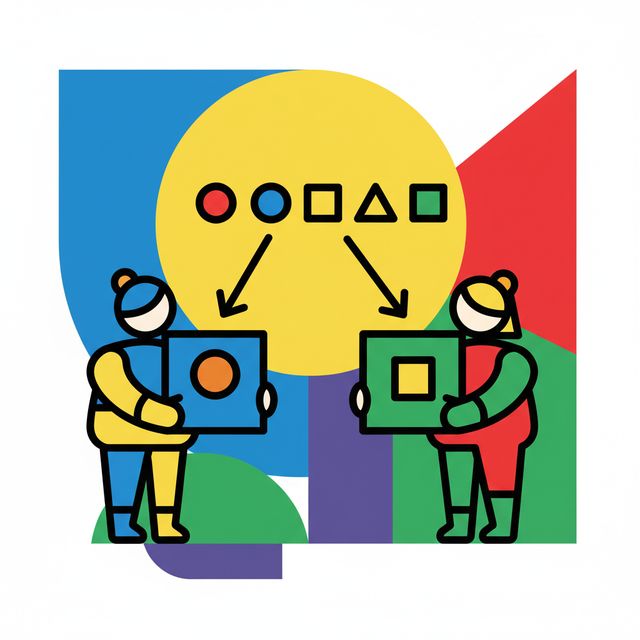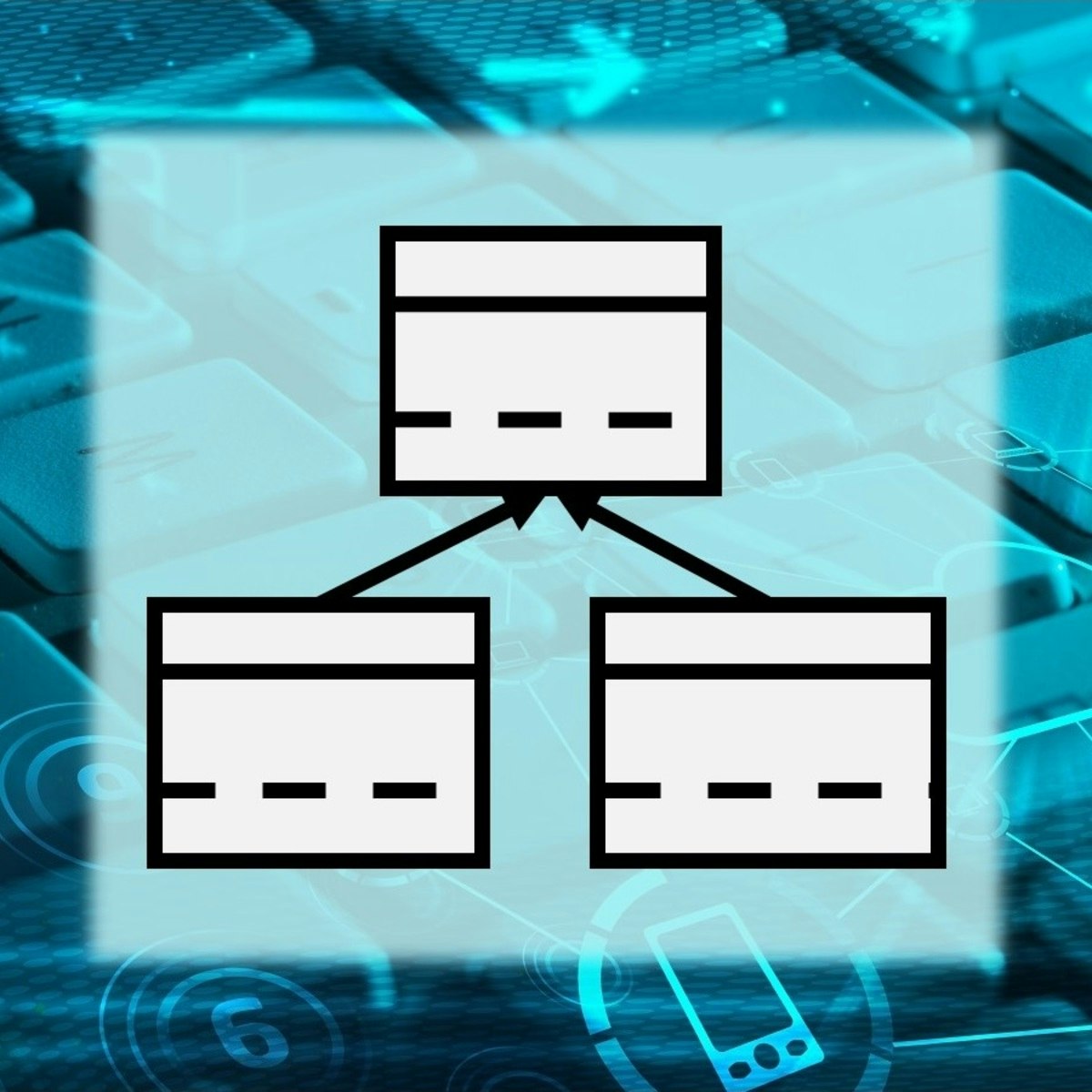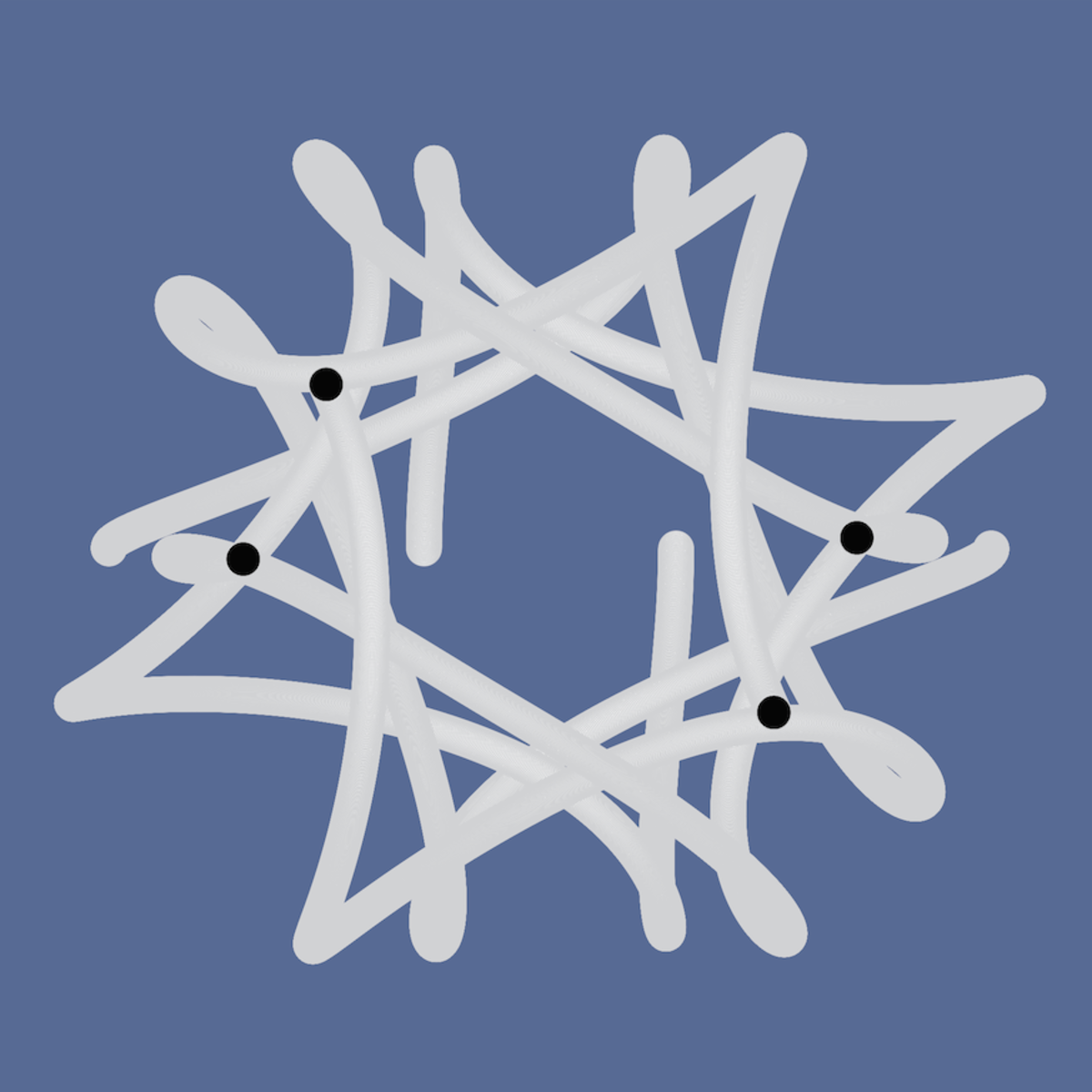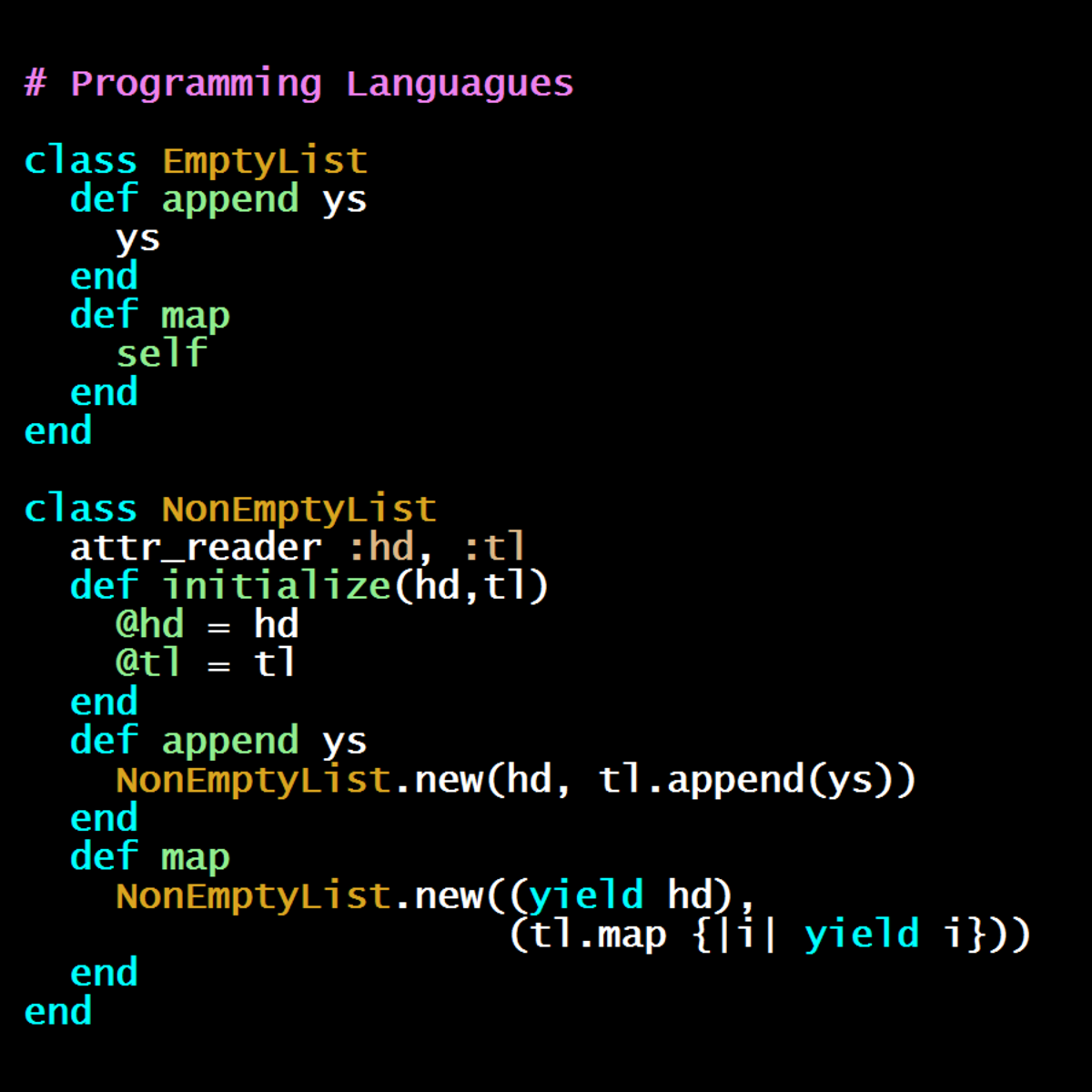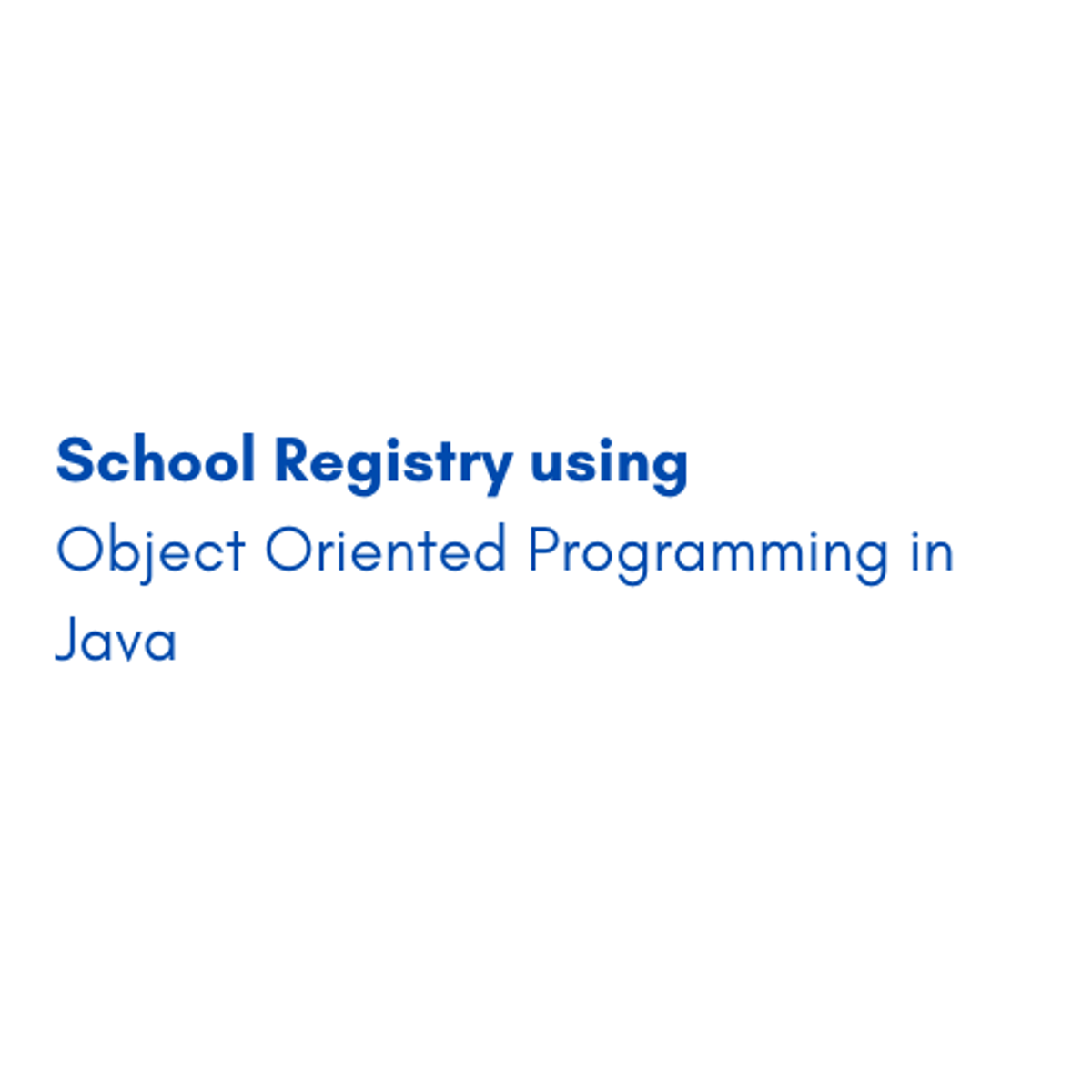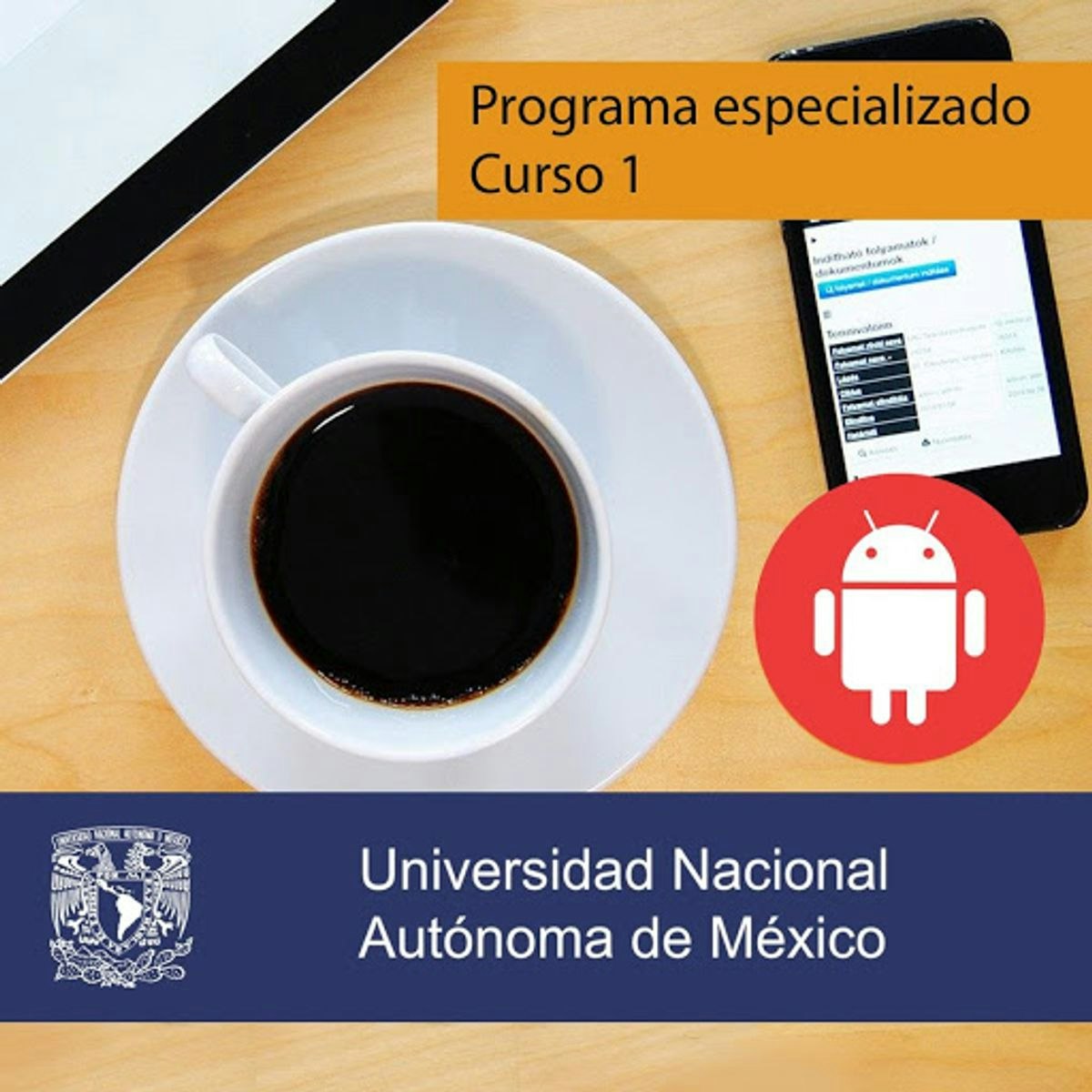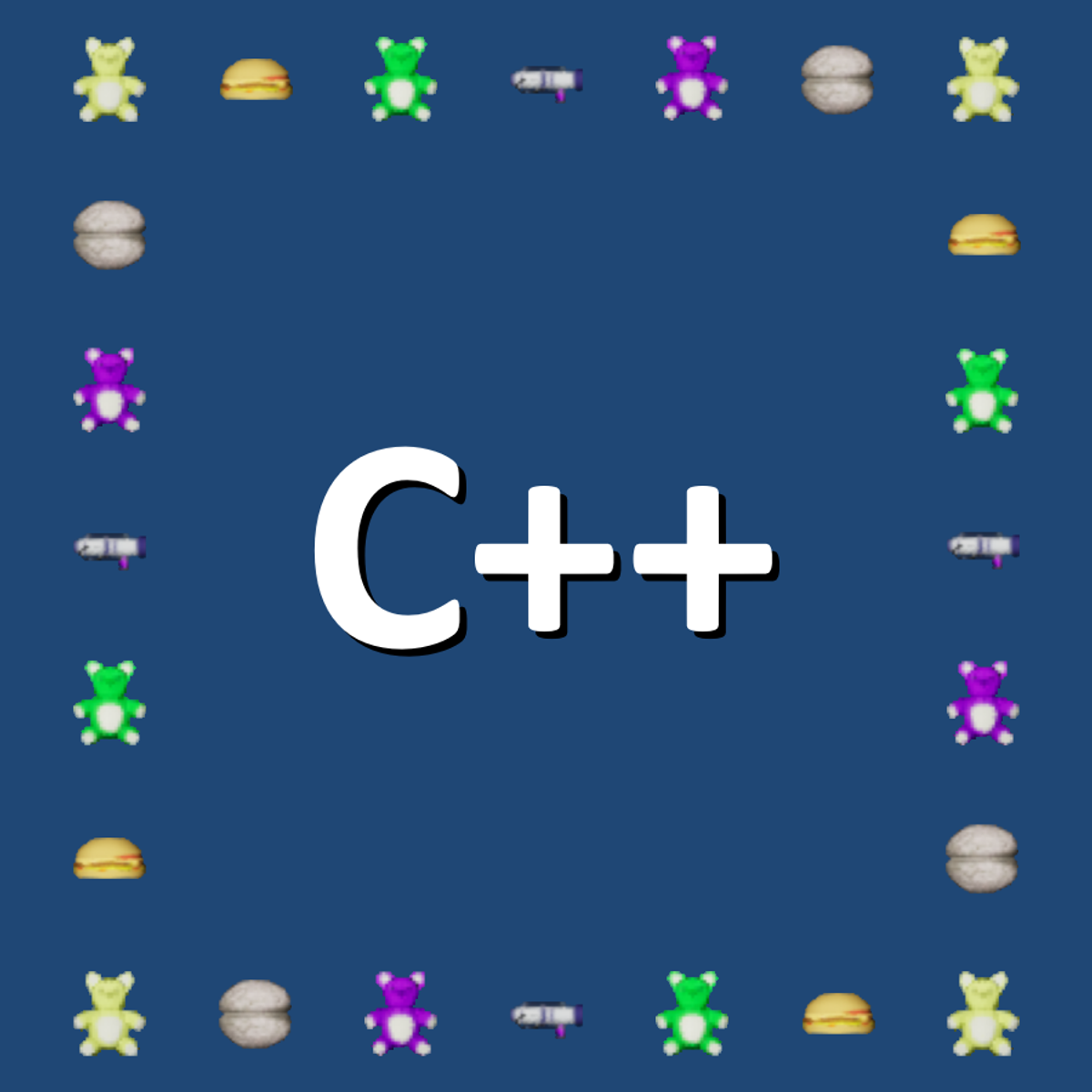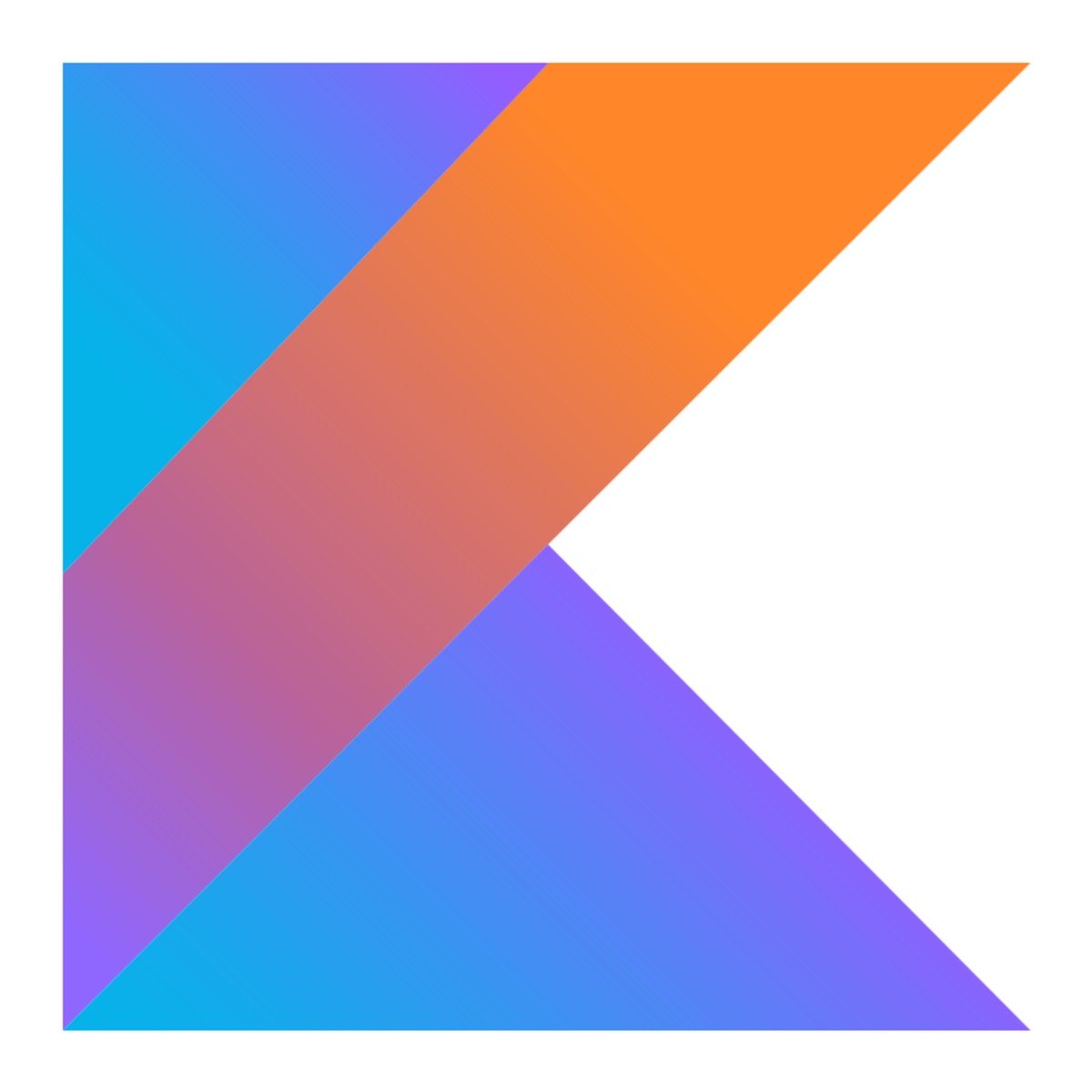Object-Oriented Programming
Introduction to Object-Oriented Programming
Object-Oriented Programming, often abbreviated as OOP, is a fundamental programming paradigm that revolves around the concept of "objects." These objects can be thought of as self-contained entities that bundle together data (attributes or properties) and the functions (methods) that operate on that data. Instead of focusing on logic and functions to manipulate data, OOP emphasizes the objects themselves. This approach is particularly well-suited for developing large, complex software systems that require ongoing updates and maintenance. Many widely-used programming languages, including Java, C++, Python, and C#, are built upon OOP principles.
Working with Object-Oriented Programming can be an engaging and exciting endeavor for several reasons. Firstly, OOP allows developers to model real-world problems and systems in a more intuitive way, as objects in code can directly correspond to entities and concepts in the real world. This can make the design and development process more logical and easier to understand. Secondly, the principles of OOP, such as encapsulation and inheritance, promote code reusability and modularity. This means you can build robust and scalable applications more efficiently, often with less repetitive code. Finally, the structured nature of OOP can lead to code that is easier to maintain, debug, and collaborate on, which is a significant advantage in team-based development environments.
Introduction to Object-Oriented Programming
This section will provide a foundational understanding of Object-Oriented Programming, explain its historical context, compare it with other programming paradigms, and list common programming languages that support OOP. It's designed to be clear for beginners and those new to programming concepts.
What is Object-Oriented Programming?
Object-Oriented Programming (OOP) is a programming model that organizes software design around data, or "objects," rather than functions and logic. An object can be defined as a data field that possesses unique attributes (characteristics or data) and behaviors (actions or functions it can perform). The core idea is to bind together the data and the functions that operate on that data, so that other parts of the code have controlled access to this data, primarily through those defined functions. This approach contrasts with procedural programming, which focuses on writing procedures or methods that perform operations on data.
OOP aims to mirror real-world entities and their interactions within a program. For example, if you were creating a program about cars, you could have a "Car" object. This object would have attributes like color, model, and speed, and methods like accelerate, brake, and turn. Each individual car in your program would be an instance of this "Car" object, inheriting its general characteristics and behaviors but having its own specific values for attributes (e.g., a red Ferrari or a blue Toyota). This way of structuring programs can make them more intuitive to design and understand, especially for complex systems.
The main benefits of OOP include increased code reusability, as objects and their blueprints (classes) can be used multiple times; modularity, where objects are self-contained, making troubleshooting easier; and maintainability, as changes within one object are less likely to affect other parts of the program. This leads to faster development, clearer program structure, and more robust applications.
To help solidify these foundational concepts, the following courses offer an introduction to object-oriented programming principles, often using popular languages like Python or Java. They are suitable for learners who are just starting to explore OOP.
A Look Back: The History of OOP
The foundational ideas of Object-Oriented Programming began to emerge in the 1960s. The Simula I (1962-1965) and Simula 67 (1967) languages, developed by Ole-Johan Dahl and Kristen Nygaard at the Norwegian Computing Center, are considered the earliest object-oriented languages. Simula 67, in particular, introduced key concepts like classes, objects, and inheritance, laying the groundwork for future OOP development, although the term "object-oriented" wasn't widely used at that time. Simultaneously, the concept of "objects" in programming was also being explored by the artificial intelligence group at MIT in the late 1950s and early 1960s. Ivan Sutherland's Sketchpad (1960-1961) also defined terms like "object" and "instance" in a graphical interaction context.
The term "object-oriented" was coined in the 1970s by Alan Kay, then a researcher at Xerox PARC. Influenced by both MIT's work and Simula, Kay, along with Dan Ingalls and Adele Goldberg, developed Smalltalk. Smalltalk was the first programming language to fully implement the object-oriented paradigm as we understand it today, introducing revolutionary ideas like message sending between objects, encapsulation, and dynamic inheritance. Smalltalk's development significantly influenced the later trajectory of OOP.
Object-Oriented Programming rose to prominence in the late 1970s and throughout the 1980s. During the mid-1980s, new object-oriented languages like Objective-C (developed by Brad Cox, influenced by Smalltalk), C++ (created by Bjarne Stroustrup, based on his experience with Simula), and Eiffel (designed by Bertrand Meyer) emerged. C++, in particular, gained widespread use, though its power came with complexity. OOP became the dominant programming paradigm in the 1990s, especially with the rise of graphical user interfaces (GUIs), which naturally lent themselves to object-based design for elements like buttons and menus. The development of Java in the mid-1990s by James Gosling and his team at Sun Microsystems further solidified OOP's position, combining C++-like syntax with a strong object-oriented architecture and platform independence. Python, created by Guido van Rossum around the same time, also included OOP concepts from its early versions and has continued to enhance its OOP support. More recently, JavaScript evolved significantly with ES6 (ECMAScript 2015), incorporating more explicit object-oriented features like classes and inheritance.
OOP vs. Other Programming Paradigms
Object-Oriented Programming (OOP) is one of several major programming paradigms, each with its own approach to structuring and writing code. Understanding the distinctions can help clarify OOP's unique strengths.
One of the most common comparisons is with Procedural Programming. In procedural programming, a program is typically divided into a set of functions or procedures that perform operations on data. It follows a top-down approach, where a problem is broken into smaller, manageable sub-problems or procedures. Data and functions are often separate, and data may move freely between functions, sometimes globally accessible. Examples of procedural languages include C, FORTRAN, and Pascal. In contrast, OOP takes a bottom-up approach, organizing the program into "objects" which are instances of "classes." These objects bundle data (attributes) and the functions (methods) that operate on that data. This encapsulation in OOP promotes data hiding, making it more secure and easier to manage changes, as modifications within an object are less likely to impact other parts of the program. OOP also emphasizes concepts like inheritance and polymorphism, which allow for code reusability and flexibility not as readily available in procedural programming.
Another important paradigm to consider is Functional Programming (FP). Functional programming treats computation as the evaluation of mathematical functions. It emphasizes immutability (data doesn't change after creation), pure functions (functions that always produce the same output for the same input and have no side effects), and declarative code. This can lead to concise and efficient code, particularly for tasks involving concurrent computing and large-scale data processing, such as in machine learning and data science. While OOP focuses on objects and their state, FP focuses on functions and transforming data. Some modern languages, like Scala, Kotlin, and JavaScript, are increasingly blending features from both OOP and FP, allowing developers to leverage the strengths of each paradigm. This hybrid approach offers flexibility in tackling diverse programming challenges.
Ultimately, the choice of paradigm often depends on the nature of the problem, the scale of the project, and the specific requirements for maintainability, scalability, and performance. While OOP excels in modeling complex systems with many interacting parts and promoting reusable, modular code, other paradigms offer distinct advantages in different contexts.
Popular Languages for OOP
Many widely-used programming languages support Object-Oriented Programming, each with its own syntax and specific features that implement OOP principles. Some languages were designed with OOP as a core tenet, while others have incorporated OOP features over time.
Java is one of the most prominent OOP languages, known for its platform independence ("write once, run anywhere") and extensive use in enterprise-level applications, Android app development, and large-scale web applications. It strongly emphasizes class-based structures and promotes code readability and robust error handling.
C++ is another foundational OOP language that evolved from C. It offers powerful low-level memory manipulation capabilities combined with high-level object-oriented features, making it a popular choice for game development (e.g., Unreal Engine), system software, and high-performance applications.
Python is celebrated for its simplicity, readability, and versatility. While not exclusively an OOP language, it provides robust support for OOP concepts, allowing developers to implement them easily. Python is widely used in web development (e.g., Django framework), data analysis, artificial intelligence, machine learning, and automation.
C# (C Sharp) was developed by Microsoft as part of its .NET framework. It is heavily influenced by Java and C++ and is primarily used for developing Windows desktop applications, web applications with ASP.NET, and game development with the Unity engine.
JavaScript, originally a scripting language for web browsers, has evolved to become a powerful multi-paradigm language with strong support for OOP, especially since the ES6 (ECMAScript 2015) update. It is essential for front-end web development and increasingly used for back-end development with Node.js.
Other notable languages with strong OOP capabilities include Swift (for iOS and macOS development), Kotlin (increasingly popular for Android development and fully interoperable with Java), Ruby (known for the Ruby on Rails web framework), and PHP (widely used for server-side web development). Even languages like Scala offer a blend of object-oriented and functional programming paradigms.
For those looking to start learning OOP with a specific language, these courses provide excellent starting points in Java, Python, C++, and JavaScript.
These books are highly regarded in the field and offer deep dives into object-oriented principles and design.
Core Concepts of Object-Oriented Programming
To truly understand and effectively utilize Object-Oriented Programming, one must grasp its fundamental concepts. These principles are the pillars upon which OOP is built and provide the framework for designing robust, maintainable, and scalable software. The four major principles often highlighted are Encapsulation, Abstraction, Inheritance, and Polymorphism.
Classes and Objects: The Building Blocks
At the very heart of Object-Oriented Programming are classes and objects. Think of a class as a blueprint, a template, or a user-defined data type. It defines a set of common properties (attributes or data members) and behaviors (methods or member functions) that all objects of that type will share. For instance, a class named `Dog` could define attributes like `breed`, `color`, and `age`, and methods like `bark()`, `wagTail()`, and `fetch()`. The class itself is not a dog; it's the definition of what a dog is in the context of your program.
An object, on the other hand, is a specific instance of a class. It's a concrete entity created from the class blueprint. Using our `Dog` class example, you could create multiple dog objects: `myDog` (a specific Golden Retriever, brown, 3 years old) and `neighborsDog` (a specific Poodle, white, 5 years old). Each object would have its own values for the attributes defined in the `Dog` class (e.g., `myDog.color` would be "brown" while `neighborsDog.color` would be "white"), but they would all share the same methods (e.g., both `myDog` and `neighborsDog` can `bark()`). In essence, objects are the basic units of OOP that represent real-life or abstract entities, containing both data and the code to manipulate that data.
This relationship between classes and objects is fundamental to how OOP organizes code. Programs are designed by creating objects that interact with one another by sending messages (calling each other's methods). This structure helps in creating modular and reusable code.
The following courses offer practical experience in working with classes and objects in various OOP languages, which is essential for building a solid foundation.
Understanding the creation and use of objects is a crucial step. This book provides further insight into the thought process behind object-oriented design.
Inheritance and Polymorphism: Reusability and Flexibility
Inheritance is a powerful mechanism in OOP that allows a new class (known as a subclass, derived class, or child class) to acquire the properties (attributes) and behaviors (methods) of an existing class (known as a superclass, base class, or parent class). This promotes code reusability, as common logic can be defined once in a superclass and then inherited by multiple subclasses, eliminating redundant code. For example, you might have a `Vehicle` class with general attributes like `speed` and methods like `accelerate()`. Then, you could create subclasses like `Car`, `Truck`, and `Motorcycle`, all of which inherit from `Vehicle`. These subclasses automatically get the `speed` attribute and `accelerate()` method, but they can also add their own specific attributes (e.g., `numberOfDoors` for `Car`) and methods, or even modify the inherited ones.
Polymorphism, which means "many forms," allows objects to be treated as instances of their parent class, yet behave according to their specific subclass implementation. It enables objects of different classes to respond to the same message (method call) in different ways. Continuing the `Vehicle` example, if you have a `move()` method in the `Vehicle` class, each subclass (`Car`, `Truck`, `Motorcycle`) can implement its own version of `move()`. When you call `move()` on a `Vehicle` object, the specific version of `move()` that gets executed will depend on whether the object is actually a `Car`, `Truck`, or `Motorcycle`. This makes the code more flexible and extensible, as you can add new types of vehicles without changing the code that calls the `move()` method. Polymorphism often involves concepts like method overriding (where a subclass provides a specific implementation for a method already defined in its superclass) and interfaces (which define a contract for what methods a class must implement).
Together, inheritance and polymorphism are key to creating flexible, reusable, and well-organized object-oriented systems. They allow developers to build complex hierarchies of classes that model real-world relationships and behaviors effectively.
These courses explore inheritance and polymorphism in depth, using languages like C++ and Java.
This book is a classic resource for understanding object-oriented analysis and design, including these core principles.
Encapsulation and Abstraction: Data Hiding and Simplification
Encapsulation is a fundamental OOP principle that involves bundling the data (attributes) and the methods (functions) that operate on that data within a single unit, called an object or class. A key aspect of encapsulation is data hiding, where the internal state of an object is kept private and protected from outside access. Other objects or parts of the program cannot directly access or modify this internal data. Instead, they interact with the object through a well-defined public interface, typically a set of public methods. For example, an `Employee` object might have a private attribute `salary`. Instead of allowing direct modification of `salary`, the object would provide public methods like `getSalary()` to read it and `setSalary(newAmount)` to change it, potentially with validation logic inside `setSalary()`. This protects the data from unintended corruption, enhances security, and makes the code easier to manage and maintain, as the internal implementation of an object can be changed without affecting other parts of the system that use its public interface.
Abstraction is the concept of hiding complex implementation details and exposing only the essential features or functionalities of an object to the user. It allows developers to focus on what an object does rather than how it does it. Abstraction can be seen as an extension of encapsulation. By providing a simplified view, abstraction helps manage complexity, especially in large software systems. For instance, when you drive a car, you interact with high-level abstractions like the steering wheel, accelerator, and brakes. You don't need to know the intricate details of the engine's combustion process or the braking system's hydraulics to operate the car effectively. Similarly, in OOP, an object might offer a simple method like `calculateTotal()` without exposing the complex series of calculations happening internally. This makes the object easier to use and reduces the cognitive load on other developers interacting with it.
Encapsulation and abstraction work together to create well-defined, self-contained, and easy-to-use objects, which are crucial for building robust and maintainable software.
The following courses delve into the practical application of encapsulation and abstraction, key for writing clean and maintainable OOP code.
Method Overloading and Overriding: Polymorphic Behaviors
Method overloading and method overriding are two distinct ways that Object-Oriented Programming achieves polymorphism, allowing objects to exhibit different behaviors even when methods share the same name. These concepts are crucial for creating flexible and intuitive code.
Method Overloading occurs when two or more methods within the same class share the same name but have different parameter lists (i.e., different number of parameters, different types of parameters, or both). The compiler or interpreter determines which version of the method to execute based on the arguments passed during the method call. This allows a single method name to perform similar but slightly different tasks depending on the context provided by the input parameters. For example, a `Calculator` class might have multiple `add()` methods: `add(int a, int b)` to add two integers, `add(double a, double b)` to add two doubles, and `add(int a, int b, int c)` to add three integers. The correct `add()` method is chosen at compile time based on the arguments supplied. This makes the class interface more user-friendly as developers don't need to remember different method names for similar operations.
Method Overriding, on the other hand, is a feature of inheritance. It occurs when a subclass (or derived class) provides a specific implementation for a method that is already defined in its superclass (or base class). The method in the subclass must have the same name, same return type, and same parameter list as the method in the superclass. This allows the subclass to modify or extend the behavior inherited from its parent. For example, a `Shape` superclass might have a `draw()` method. Subclasses like `Circle` and `Square` can then override the `draw()` method to provide their specific drawing logic. When `draw()` is called on an object, the version of the method that is executed depends on the actual type of the object at runtime (e.g., if it's a `Circle` object, the `Circle`'s `draw()` method is called). This is a key aspect of runtime polymorphism.
While both overloading and overriding involve methods with the same name, overloading is about providing multiple versions of a method within the same class with different signatures for different tasks, resolved at compile-time. Overriding is about a subclass providing its own version of a method inherited from a superclass, resolved at runtime, to achieve specialized behavior.
These courses cover the nuances of method overloading and overriding, essential for implementing polymorphic behavior in OOP.
Object-Oriented Programming Principles (SOLID)
Beyond the four core concepts (Encapsulation, Abstraction, Inheritance, and Polymorphism), a set of design principles known as SOLID plays a crucial role in developing robust, maintainable, and scalable object-oriented software. Coined by Robert C. Martin, these five principles guide software engineers in creating systems that are easier to understand, modify, and extend over time. Adhering to SOLID principles helps prevent common design flaws and promotes cleaner, more flexible code architectures.
Single Responsibility Principle (SRP)
The Single Responsibility Principle (SRP) states that a class should have only one reason to change, meaning it should have only one job or responsibility. If a class has more than one responsibility, these responsibilities become coupled. Changes to one responsibility might inadvertently affect or necessitate changes in another, making the class harder to maintain and more prone to errors.
For example, consider a class that both manages employee data (like name and salary) and also handles the persistence of that data to a database. This class has two responsibilities: employee data management and data storage. If the way employee data is structured changes, the class needs to be modified. If the database system changes, the class also needs to be modified. According to SRP, these two concerns should be separated into different classes. One class would be responsible for the employee data model, and another class would be responsible for saving and loading employee data to/from the database.
By adhering to SRP, classes become more focused, easier to understand, and less brittle. When a class has a single responsibility, changes to that specific part of the system are localized, reducing the risk of unintended side effects in other parts of the application. This principle leads to higher cohesion within classes and lower coupling between them, contributing to a more robust and maintainable codebase.
Courses focusing on software design principles and design patterns often cover SOLID principles in detail.
This book is a cornerstone for understanding clean code and design principles, including SRP.
Open/Closed Principle (OCP)
The Open/Closed Principle (OCP) dictates that software entities (classes, modules, functions, etc.) should be open for extension but closed for modification. This means that you should be able to add new functionality to a class or module without altering its existing source code. Changing existing, working code is risky because it can introduce bugs into features that were previously functioning correctly.
To achieve OCP, developers often rely on abstraction and polymorphism. For instance, instead of having a class with a large conditional block (e.g., if-else or switch statements) that handles different types of objects or behaviors, you can use an abstraction (like an interface or an abstract base class) and create new classes that implement or inherit from this abstraction. When new functionality is needed for a new type, you create a new class that conforms to the abstraction, rather than modifying the existing code that uses the abstraction. The existing client code can then work with new types through the common interface without needing to be changed itself.
Consider a system that calculates the area of different shapes. A naive approach might have a single function with a switch statement for `Circle`, `Square`, `Triangle`, etc. If you need to add a new shape, say `Rectangle`, you'd have to modify this function. Following OCP, you would define a `Shape` interface with an `calculateArea()` method. Each specific shape (`Circle`, `Square`) would implement this interface. To add `Rectangle`, you simply create a new `Rectangle` class implementing `Shape`, without touching the existing shape classes or the client code that uses shapes polymorphically.
Adhering to OCP leads to more stable and maintainable systems. New features can be added with less risk to the existing codebase, promoting scalability and flexibility over the software's lifecycle.
These courses often delve into design patterns that help achieve the Open/Closed Principle.
Liskov Substitution Principle (LSP)
The Liskov Substitution Principle (LSP), formulated by Barbara Liskov, states that objects of a superclass should be replaceable with objects of its subclasses without affecting the correctness of the program. In simpler terms, if a class `S` is a subclass of class `T`, then an object of type `T` should be substitutable with an object of type `S` without the client code noticing any difference in behavior or encountering errors.
This principle is crucial for ensuring that inheritance hierarchies are correctly designed. If a subclass cannot be used wherever its superclass is expected, it violates LSP, often leading to unexpected behavior and bugs. For example, if a `Bird` class has a `fly()` method, and a `Penguin` class inherits from `Bird` but cannot fly (or throws an exception if `fly()` is called), then a `Penguin` object is not truly substitutable for a `Bird` object in contexts where flying is expected. This indicates a flaw in the class hierarchy design according to LSP.
To adhere to LSP, subclasses must honor the contract established by their superclasses. This means they should not:
- Strengthen pre-conditions (i.e., require more from the inputs than the superclass method).
- Weaken post-conditions (i.e., guarantee less about the output or state than the superclass method).
- Violate invariants of the superclass.
- Throw new types of exceptions that the superclass method does not declare.
Courses on advanced OOP and design patterns will often cover LSP as a key part of robust class design.
This well-regarded book on design patterns explains principles that align with LSP.
Interface Segregation Principle (ISP)
The Interface Segregation Principle (ISP) states that clients should not be forced to depend on interfaces they do not use. In other words, it's better to have many small, specific interfaces rather than one large, general-purpose interface. If an interface is too "fat," classes implementing it are forced to implement methods they don't need, often leading to empty or trivial implementations that can cause confusion or errors.
For example, imagine a single `Worker` interface that includes methods for `work()`, `eat()`, and `sleep()`. If you have a `RobotWorker` class, it might implement `work()` but `eat()` and `sleep()` would be irrelevant. Forcing `RobotWorker` to implement these methods (perhaps by throwing a "not supported" exception or doing nothing) violates ISP. A better approach would be to segregate the interfaces: an `IWorkable` interface with a `work()` method, an `IEatable` interface with an `eat()` method, and an `ISleepable` interface with a `sleep()` method. A `HumanWorker` class could implement all three, while a `RobotWorker` would only implement `IWorkable`.
By adhering to ISP, you create more focused and cohesive interfaces. Classes only implement the methods that are relevant to them, leading to a more decoupled system. This reduces the impact of changes – if an interface needs to change, only the clients and implementers of that specific, smaller interface are affected. ISP promotes better software design by preventing "fat" interfaces and ensuring that classes are not burdened with unnecessary dependencies.
These courses discuss creating well-defined interfaces, which is central to ISP.
Dependency Inversion Principle (DIP)
The Dependency Inversion Principle (DIP) states two things:
- High-level modules should not depend on low-level modules. Both should depend on abstractions (e.g., interfaces).
- Abstractions should not depend on details. Details (concrete implementations) should depend on abstractions.
For example, consider a `NotificationService` (high-level module) that needs to send notifications. Without DIP, it might directly instantiate and use an `EmailSender` (low-level module). This creates a tight coupling; if you want to switch to sending SMS notifications, you have to change `NotificationService`. With DIP, you would define an `IMessageSender` interface with a `sendMessage()` method. `NotificationService` would depend on `IMessageSender`. `EmailSender` would implement `IMessageSender`. If you later want to add SMS, you create an `SMSSender` class that also implements `IMessageSender`, and you can provide this to `NotificationService` (often via dependency injection) without modifying `NotificationService` itself.
Adhering to DIP leads to more flexible, maintainable, and testable systems. High-level modules are not tied to specific implementations of low-level modules, allowing for easier substitution of components and promoting a plug-and-play architecture. It is a cornerstone of creating loosely coupled systems that can evolve more gracefully over time.
Many advanced OOP and design pattern courses cover DIP, often in conjunction with dependency injection techniques.
For those interested in learning more about design patterns, including those that facilitate SOLID principles, this book is a valuable resource.
Formal Education Pathways
Pursuing a formal education is a well-established route for individuals aiming to build a strong foundation in Object-Oriented Programming and software development. These pathways offer structured learning environments, experienced instructors, and often, opportunities for networking and career placement. From pre-university preparation to advanced graduate research, various options cater to different stages of a learner's journey.
For those considering a career pivot or just starting, it's encouraging to know that structured education can provide the necessary skills and credentials. While the path requires dedication, the comprehensive knowledge gained can be invaluable in a competitive tech landscape. Remember, every expert started as a beginner, and a formal education can be a significant step in your journey.
Preparing Before University
For high school students interested in computer science and Object-Oriented Programming, laying a groundwork before university can be highly beneficial. Courses like Advanced Placement (AP) Computer Science A, which often focuses on Java and OOP concepts, can provide an excellent introduction. These courses typically cover fundamental programming principles, problem-solving techniques, and the basics of object-oriented design, such as classes, objects, inheritance, and polymorphism.
Beyond formal AP courses, students can engage in self-study using online resources, coding tutorials, and introductory programming books. Participating in coding clubs, programming competitions (like USACO - USA Computing Olympiad), or personal projects can also significantly enhance understanding and practical skills. Developing a strong foundation in mathematics, particularly in areas like logic and discrete math, can also be advantageous for a deeper understanding of computer science concepts that underpin OOP.
Early exposure helps in making a more informed decision about pursuing computer science at the university level and can provide a head start in more advanced collegiate coursework. It also cultivates critical thinking and problem-solving skills that are valuable in any field.
This course is specifically designed for AP Computer Science A, covering Java and OOP fundamentals.
For younger learners or those new to coding, introductory courses can spark interest.
Undergraduate Studies in OOP
A Bachelor's degree in Computer Science, Software Engineering, or a related field is a common and effective pathway to gaining in-depth knowledge of Object-Oriented Programming. University curricula in these programs typically include multiple courses dedicated to programming paradigms, with a significant focus on OOP. Students learn the theoretical underpinnings of OOP concepts like classes, objects, inheritance, polymorphism, encapsulation, and abstraction, and apply them through practical coding assignments and projects.
Core coursework often involves programming in languages like Java, C++, Python, or C#, all of which have strong OOP capabilities. [97, pa6as1] Students usually progress from fundamental programming courses to more advanced topics such as data structures and algorithms, software design principles (including SOLID), database management, and software engineering methodologies. [zji5c5, 5xodin] Many programs also offer specializations or elective courses in areas like mobile application development, game development, web development, or artificial intelligence, where OOP is extensively applied. [cgxxl1, jki2by, w0gpod]
Beyond coursework, undergraduate studies provide opportunities for internships, co-op programs, research projects with faculty, and participation in student organizations, all of which can enhance practical OOP skills and build a professional network. The structured environment and comprehensive education offered by a bachelor's degree program can equip individuals with the robust theoretical knowledge and practical skills needed for a successful career in software development using OOP.
Many universities offer introductory and advanced programming courses that cover OOP extensively. Here are a few examples of the types of courses available, often through platforms like Coursera or edX, which partner with universities:
For foundational knowledge, these books are often recommended in undergraduate curricula.
Graduate-Level Research and Specialization
For those looking to delve deeper into the theoretical aspects of Object-Oriented Programming, explore advanced design paradigms, or contribute to the evolution of OOP languages and methodologies, graduate studies (Master's or Ph.D.) in Computer Science offer significant opportunities. Graduate research in OOP can span a wide range of topics, including new language features, type systems, advanced design patterns, software architecture, formal verification of object-oriented systems, and the application of OOP principles in emerging fields like quantum computing or AI-driven development.
Master's programs often provide specialized coursework in advanced software engineering, distributed systems, and specific application domains where OOP is critical. They may also involve a significant project or thesis that allows students to apply advanced OOP concepts to solve complex problems. Ph.D. programs are research-intensive, requiring students to make original contributions to the field of computer science, potentially pushing the boundaries of what's possible with object-oriented design and implementation.
Researchers in this area might investigate topics like the integration of OOP with other paradigms (e.g., functional programming, aspect-oriented programming), the development of more secure or efficient object models, or the creation of tools and techniques to improve the development and maintenance of large-scale object-oriented software. Such advanced study is typically for individuals passionate about the academic and research aspects of computer science or those aiming for highly specialized roles in industry or academia.
While specific graduate research courses are highly specialized and vary by institution, courses on advanced programming languages, software architecture, and design patterns often form the groundwork for such research.
Certifications and Specialized Training
Beyond traditional degree programs, certifications and specialized training programs offer another avenue for acquiring and validating Object-Oriented Programming skills. These programs are often more focused and can be completed in a shorter timeframe than a degree, making them an attractive option for career pivoters, professionals looking to upskill, or individuals seeking to specialize in a particular OOP language or technology.
Many technology vendors and professional organizations offer certifications related to specific programming languages that heavily utilize OOP, such as Java (e.g., Oracle Certified Professional, Java SE Programmer), C#, or Python. [jeqtm2] These certifications typically require passing one or more exams that test knowledge of the language syntax, OOP concepts, and standard libraries. Preparing for these certifications often involves dedicated study, hands-on practice, and sometimes, specialized training courses designed to cover the exam objectives.
Specialized training programs, offered by bootcamps, online learning platforms, and corporate training providers, can provide intensive, hands-on instruction in OOP and its application in areas like web development, mobile app development, or enterprise software. These programs often emphasize practical skills and project-based learning, aiming to make participants job-ready quickly. When choosing a certification or training program, it's important to consider its industry recognition, the relevance of the skills taught to your career goals, and the quality of the curriculum and instruction.
For those making a career transition, certifications and focused training can be a particularly encouraging path. They provide tangible credentials and practical skills that can demonstrate your commitment and capability to potential employers. While challenging, these programs are designed to be achievable and can significantly boost your confidence and marketability.
Many online platforms offer courses that can help prepare for certifications or provide specialized OOP training. Here are some examples that cover specific languages or advanced topics:
Consider exploring OpenCourser's Programming category for a wide array of courses that can support your certification journey or specialized training needs.
Online and Self-Directed Learning
In today's digital age, online learning and self-directed study have become increasingly viable and popular pathways for mastering complex subjects like Object-Oriented Programming. The wealth of resources available online, from comprehensive courses to targeted tutorials and active communities, provides learners with unprecedented flexibility and accessibility. This approach is particularly empowering for those who are self-taught, looking to supplement formal education, or professionals aiming to upskill at their own pace.
Embarking on a self-directed learning journey in OOP requires discipline and a strategic approach, but it is entirely achievable. The key is to combine theoretical understanding with consistent practical application. For career changers or those new to the tech field, this path can be especially rewarding, offering a direct route to acquiring in-demand skills. While the journey may have its challenges, the satisfaction of mastering OOP through your own efforts can be immense. Remember to set realistic goals, celebrate small victories, and leverage the vast online learning ecosystem.
Can You Master OOP Without a Degree?
Yes, it is certainly feasible to master Object-Oriented Programming without a formal university degree. The abundance of high-quality online courses, tutorials, documentation, and open-source projects provides a rich learning environment for dedicated self-learners. Many successful software developers have built their careers on skills acquired through self-directed study and practical experience rather than traditional academic pathways.
The key to mastering OOP independently lies in a structured approach, consistent effort, and a focus on practical application. This involves not just understanding the theoretical concepts of classes, objects, inheritance, polymorphism, encapsulation, and abstraction, but also actively applying them by writing code, building projects, and solving real-world problems. Online platforms like OpenCourser offer a vast catalog of courses from various providers, allowing learners to find materials that suit their learning style and pace. Resources such as interactive coding platforms, developer communities (like Stack Overflow or GitHub), and programming blogs also play a crucial role in supplementing learning and providing support.
While a formal degree can offer a structured curriculum and recognized credentials, employers in the tech industry increasingly value demonstrated skills, a strong portfolio of projects, and the ability to learn and adapt. Therefore, a self-taught individual who can showcase proficiency in OOP through practical projects and a solid understanding of its principles can be just as competitive, if not more so, than a degree holder. It requires discipline, persistence, and a proactive approach to learning, but the path to OOP mastery is open to anyone willing to put in the effort.
These courses are excellent for self-starters looking to get a comprehensive understanding of OOP principles in different languages:
Effective Project-Based Learning
Project-based learning is an exceptionally effective strategy for mastering Object-Oriented Programming. Instead of solely relying on theoretical study, building tangible projects allows you to apply OOP concepts in a practical context, solidify your understanding, and develop problem-solving skills. This hands-on approach helps bridge the gap between knowing the definitions of terms like "encapsulation" or "inheritance" and understanding how to use them to design and implement working software.
Start with small, manageable projects that focus on specific OOP concepts. For example, after learning about classes and objects, you could build a simple application like a basic library management system with `Book` and `Library` objects. As you learn about inheritance, you could extend this with different types of `Book` (e.g., `FictionBook`, `NonFictionBook`). As your skills grow, you can tackle more complex projects, such as a text-based adventure game [w4z76v], a small e-commerce system, or a personal finance tracker. Many online courses, like "Teach teens computing: Object-oriented Programming in Python," explicitly use a project, such as creating a text-based adventure game, to teach OOP principles. [w4z76v] Another course, "Object-Oriented Programming in Python," involves building an interactive boxing match simulation. [hrz8uz]
When working on projects, focus on designing your classes and their relationships thoughtfully. Think about what data each class should encapsulate and what methods it should expose. Consider how inheritance can be used to reduce code duplication and how polymorphism can make your system more flexible. Regularly refactor your code as you learn new principles or better ways to structure your objects. Contributing to open-source projects or collaborating with other learners on projects can also provide valuable experience and feedback. A portfolio of well-designed OOP projects is often a key asset when seeking employment as a software developer.
These project-focused courses can help you apply OOP concepts directly:
Balancing Theory with Hands-On Coding
Successfully learning Object-Oriented Programming, especially through self-directed means, hinges on finding the right balance between understanding the theoretical underpinnings and engaging in consistent, practical coding exercises. Theory provides the "why" and "what"—the principles of encapsulation, abstraction, inheritance, and polymorphism, and design guidelines like SOLID. Hands-on coding provides the "how"—the actual implementation of these concepts in a chosen programming language.
Start by grasping the core theoretical concepts. Many online courses and books dedicate initial sections to explaining these ideas, often with conceptual examples. [hmidig, l9iaf9] However, don't dwell too long on theory alone. The real learning happens when you try to apply these concepts. As soon as you understand a principle, attempt to implement it in small code snippets or exercises. For example, after learning about classes and objects, create a simple class with a few attributes and methods. After learning about inheritance, create a small class hierarchy.
Integrate coding exercises into your learning routine. Many online courses offer embedded coding environments or assignments that allow you to practice immediately. [8jv1xf, 02hcuf] Supplement these with your own challenges. Try to solve problems from coding challenge websites using an object-oriented approach. The goal is to make the translation from abstract concept to concrete code a natural and iterative process. Regularly switch between reading/watching theoretical content and actively writing, debugging, and refining your own OOP code. This iterative cycle of learning theory, applying it in code, encountering problems, and then revisiting theory to understand solutions is key to deep and lasting comprehension.
Courses that blend theoretical explanations with practical coding are ideal for this balanced approach.
These books provide both strong theoretical foundations and examples that can inspire coding practice.
Choosing Quality Online Learning Resources
The vast number of online resources for learning Object-Oriented Programming can be both a blessing and a curse. While there's a wealth of information available, discerning high-quality, relevant courses and materials is crucial for effective self-directed learning. When evaluating online courses, consider several factors to ensure they meet your learning needs.
Firstly, look at the course structure and content. A good OOP course should cover the fundamental principles (encapsulation, abstraction, inheritance, polymorphism) clearly and thoroughly, often with examples in a specific programming language. Check if it also introduces important design principles like SOLID. The course should ideally balance theoretical explanations with practical coding exercises and, if possible, a capstone project to apply what you've learned. Examine the syllabus or course outline for topics covered and the depth of coverage. For instance, courses like "Object Oriented Programming in Java" from UC San Diego are designed for learners with previous software development experience and aim to create advanced Java programs, indicating a certain depth. [b3z2oy]
Secondly, consider the credibility of the instructors and the institution or platform offering the course. Courses from reputable universities or well-known industry professionals often provide a high standard of education. [wvmmic, bkgsud] Look for instructor bios and any available reviews or ratings from past students. Platforms like OpenCourser can help by aggregating courses and providing details like instructor names, institutions, and sometimes, learner reviews and enrollment numbers, which can be indicators of quality and popularity. [c5rpwx, hnr09b] For example, "Learn Python Programming Masterclass" has a high rating and a large number of enrollments and reviews, suggesting it's a well-regarded resource. [c5rpwx]
Finally, assess the relevance of the course to your learning goals. Are you looking for an introduction to OOP concepts in general, or do you want to learn OOP in a specific language like Python, Java, or C++? [hrz8uz, zvvoj3, l9vje1] Does the course focus on a particular application area, such as game development or web development, that aligns with your interests? [jki2by] Also, consider the learning style the course supports – does it offer video lectures, interactive exercises, peer-reviewed assignments, or community forums? Choosing resources that match your goals and learning preferences will make your self-directed learning journey more effective and enjoyable.
To find a wide range of OOP courses, you can explore the Programming section on OpenCourser, where you can filter by language, difficulty, and other criteria to find the best fit for your needs.
Career Progression in Object-Oriented Programming
A strong foundation in Object-Oriented Programming opens doors to a wide array of career opportunities and progression paths within the technology sector. OOP is a fundamental skill for many software development roles, and as you gain experience and expertise, you can move into more specialized and leadership positions. The journey often begins with entry-level roles and can lead to significant technical and managerial responsibilities.
For those starting out or considering a pivot into tech, it's encouraging to know that OOP skills are highly valued and can lead to a fulfilling and dynamic career. The path may require continuous learning and adaptation, but the demand for skilled OOP developers remains robust across various industries. With dedication, you can build a rewarding career leveraging your OOP expertise.
Starting Your OOP Career: Entry-Level Roles
With a solid understanding of Object-Oriented Programming principles and practical experience in at least one OOP language (like Java, Python, C#, or C++), individuals can pursue various entry-level roles in the software development industry. These positions provide valuable real-world experience and serve as a launchpad for further career growth.
Common entry-level roles include Junior Software Developer or Software Engineer I. In these roles, you would typically work as part of a team, contributing to the design, development, testing, and maintenance of software applications. Your tasks might involve writing and debugging code, implementing specific features based on requirements, participating in code reviews, and learning from senior developers. Another potential entry point is a Quality Assurance (QA) Engineer or Software Development Engineer in Test (SDET). While focused on testing, these roles often require strong programming skills, including OOP, to develop automated test scripts and frameworks, ensuring the quality and reliability of software products.
Other possibilities include roles like Application Developer, focusing on specific types of applications (e.g., web or mobile), or even Technical Support Engineer roles that require a good understanding of the underlying software architecture, which is often object-oriented. Internships and co-op programs during or after formal education can also be excellent ways to gain initial experience and transition into full-time entry-level positions. The key at this stage is to continue learning, apply OOP principles in practical scenarios, and build a portfolio of projects that showcases your skills.
These courses can help build the foundational skills needed for entry-level OOP-focused roles:
Consider exploring the Software Engineer career path on OpenCourser for more insights.
Advancing to Mid-Career and Specializations
As OOP developers gain experience and deepen their expertise, numerous paths for mid-career advancement and specialization open up. Typically, after a few years in an entry-level role, developers can progress to positions like Software Engineer II, Senior Software Engineer, or Lead Developer. These roles come with increased responsibility, including leading small teams, mentoring junior developers, making architectural decisions for components or features, and tackling more complex technical challenges.
Specialization is a common trajectory. Developers might choose to focus on a particular domain, such as:
- Software Architect: Designing the overall structure and high-level design of software systems, ensuring scalability, performance, and maintainability. This role requires a deep understanding of OOP principles, design patterns, and system design.
- Mobile App Developer: Specializing in platforms like Android (using Kotlin/Java) or iOS (using Swift), both of which heavily rely on OOP.
- Web Developer: Focusing on front-end or back-end web development, often using OOP languages like Python (with Django/Flask), Ruby (on Rails), Java (with Spring), or C# (with .NET).
- Game Developer: Working with game engines like Unity (C#) or Unreal Engine (C++), where OOP is fundamental for creating game logic, characters, and systems.
- Data Scientist/Machine Learning Engineer: While functional programming is also prevalent, OOP languages like Python are extensively used for building and deploying machine learning models.
- Database Administrator/Developer: Designing and managing databases, sometimes involving object-relational mapping (ORM) tools that bridge OOP languages with relational databases.
These courses can help experienced developers specialize or move into architectural roles:
This book is a classic for aspiring software architects and senior developers.
Explore related career paths such as:
Leadership and Management in Tech
For seasoned Object-Oriented Programming professionals with significant technical expertise and experience, leadership and management roles offer a compelling career progression path. These roles typically involve guiding technical teams, shaping engineering culture, and aligning technical strategy with business objectives. Strong communication, decision-making, and people management skills become as important as deep technical knowledge.
Common leadership roles include:
- Engineering Manager: Responsible for managing a team of software engineers, including hiring, performance management, career development, and ensuring the team delivers high-quality software on time. While they may do less hands-on coding, a strong technical background in OOP is crucial for guiding architectural decisions and mentoring team members.
- Technical Lead (Tech Lead): Often the most senior individual contributor on a team, a Tech Lead provides technical guidance, makes key architectural decisions for projects, and mentors other engineers, but may also have some people management responsibilities.
- Principal Engineer / Distinguished Engineer: Highly experienced individual contributors who are recognized technical experts within an organization. They often tackle the most complex technical challenges, drive innovation, and set technical direction across multiple teams or a whole company.
- Director of Engineering / VP of Engineering: More senior management roles that oversee multiple engineering teams or entire engineering departments, responsible for broader technical strategy, budget, and organizational leadership.
- Chief Technology Officer (CTO): An executive-level role responsible for the company's overall technology strategy, vision, and execution, particularly in technology-driven companies.
While specific courses for these high-level roles are less common as they often build on experience, understanding agile methodologies and project management is beneficial.
Freelancing and Remote Opportunities
Object-Oriented Programming skills are highly conducive to freelancing and remote work opportunities. The nature of software development, especially when following modular OOP principles, allows projects to be broken down into manageable components that can often be developed independently. This makes it easier for freelancers to take on specific parts of larger projects or to develop entire applications for clients from anywhere in the world.
Many companies, from startups to large enterprises, hire freelance OOP developers for short-term projects, to augment their existing teams, or for specialized expertise in languages like Java, Python, C#, or C++. Platforms dedicated to freelance work often list numerous projects requiring OOP skills in areas like web development, mobile app development, game development, and custom software solutions. Remote work has also become increasingly common in the tech industry, with many companies offering full-time remote positions for software engineers with strong OOP backgrounds.
To succeed as a freelance or remote OOP developer, it's important to have a strong portfolio showcasing your projects and skills, good communication abilities for interacting with clients or remote teams, and self-discipline to manage your time and deadlines effectively. Networking, maintaining an online presence (e.g., through LinkedIn or a personal website), and continuously updating your skills are also crucial. The flexibility and autonomy offered by freelancing and remote work can be very appealing, and OOP provides a solid technical foundation for pursuing these career paths.
For those looking to build a strong portfolio for freelance work, project-based courses are invaluable.
If you're interested in the business side of freelancing, you might explore topics like Entrepreneurship on OpenCourser.
Industry Applications of OOP
Object-Oriented Programming is not just a theoretical concept; its principles are extensively applied across a multitude of industries to build a vast range of software applications. The ability of OOP to model real-world entities, promote code reusability, and manage complexity makes it a cornerstone of modern software development. From the apps on your phone to the systems running global enterprises, OOP is likely playing a crucial role.
Software Development (Desktop, Mobile, Web)
Object-Oriented Programming is a foundational paradigm in virtually all areas of software development, including desktop, mobile, and web applications. Its principles help create modular, maintainable, and scalable software solutions.
In desktop application development, languages like Java (using frameworks like Swing or JavaFX), C# (with .NET frameworks like Windows Forms or WPF), and C++ (with libraries like Qt) leverage OOP to build rich user interfaces and complex application logic. These applications often involve managing many interacting components, a task well-suited to object-oriented design.
For mobile application development, OOP is central. Android app development heavily relies on Java and Kotlin, both of which are object-oriented languages. iOS app development uses Swift and Objective-C, which also follow OOP principles. The component-based nature of mobile UIs (buttons, lists, views) and the management of app states and data align well with OOP concepts like classes, objects, and encapsulation.
In web development, many server-side frameworks are built using OOP languages. Python with Django and Flask, Ruby with Rails, Java with Spring, and PHP with frameworks like Laravel or Symfony all employ object-oriented principles to structure web applications, manage databases, and handle user requests. Even on the client-side, JavaScript, with its enhanced OOP features, is used to build complex, interactive user interfaces with frameworks like React, Angular, and Vue.js, which often incorporate component-based architectures inspired by OOP ideas.
These courses offer a glimpse into how OOP is used in various development contexts:
Further explore development careers that utilize OOP:
Powering Game Development Engines
Object-Oriented Programming is a cornerstone of modern game development, providing the structural backbone for the complex and interactive systems that bring virtual worlds to life. Major game engines like Unity (which primarily uses C#) and Unreal Engine (which primarily uses C++) are heavily reliant on OOP principles.
In game development, various entities such as characters, enemies, items, projectiles, and environmental objects can be represented as objects, each with its own attributes (e.g., health, position, speed) and methods (e.g., move, attack, interact). Inheritance is widely used to create hierarchies of game entities. For example, a base `Character` class might define common attributes and behaviors, while specific character types like `Player`, `Enemy`, or `NPC` (Non-Playable Character) can inherit from it and add their unique functionalities. Polymorphism allows different types of characters or objects to respond to the same game events (like `takeDamage()` or `onCollision()`) in their own specific ways.
Encapsulation helps manage the complexity of game objects by hiding their internal states and exposing only necessary interfaces, making it easier to develop and debug game mechanics. Game engines themselves provide a framework of classes and APIs that game developers use to build their games, abstracting away much of the low-level hardware interaction and providing tools for rendering, physics, audio, and input handling, all often designed with OOP concepts.
For those interested in this exciting field, these courses offer introductions to game development using OOP principles:
You can also explore the Game Development topic and the Game Developer career on OpenCourser.
Enterprise Systems and Database Management
Object-Oriented Programming plays a critical role in the development and management of large-scale enterprise systems and the databases that support them. Enterprise applications, such as Customer Relationship Management (CRM) systems, Enterprise Resource Planning (ERP) software, and financial platforms, often involve complex business logic, extensive data management, and integration with various other systems. OOP helps manage this complexity by allowing developers to model business entities (like customers, products, orders) as objects, each encapsulating its data and behavior.
Languages like Java and C# are widely used in enterprise software development due to their robustness, scalability, and strong OOP features. Frameworks built on these languages, such as Spring (Java) and .NET (C#), provide extensive libraries and tools that facilitate the creation of complex, multi-tiered enterprise applications. OOP principles like encapsulation help in creating modular components that can be developed, tested, and maintained independently, which is crucial for large development teams. Inheritance and polymorphism allow for the creation of flexible and extensible systems that can adapt to changing business requirements.
In database management, while relational databases store data in tables, Object-Relational Mapping (ORM) tools and techniques are often used to bridge the gap between the object-oriented world of the application code and the relational world of the database. ORMs allow developers to work with objects in their code, and the ORM handles the translation to and from database tables. This allows developers to continue thinking in an object-oriented way even when interacting with relational data. Some databases are also designed as object-oriented databases (OODBs) or object-relational databases (ORDBs), which more directly support storing objects.
These courses touch upon enterprise-level concerns and database interactions within an OOP context:
Professionals in these areas often hold roles like:
OOP in Emerging Technologies: AI and IoT
Object-Oriented Programming principles are also finding significant application in emerging technological fields like Artificial Intelligence (AI) and the Internet of Things (IoT). While AI and Machine Learning (ML) also heavily utilize functional programming paradigms, OOP languages, particularly Python, are widely used for developing AI/ML models and applications due to their extensive libraries (like TensorFlow, PyTorch, scikit-learn) and ease of use. In AI, objects can represent various components of an intelligent system, such as agents, sensors, knowledge bases, or layers in a neural network. Encapsulation can help manage the complexity of these components, and inheritance can be used to create specialized versions of AI algorithms or models.
In the Internet of Things (IoT), where numerous interconnected devices collect and exchange data, OOP provides a structured way to model these devices, their sensors, actuators, and their interactions. Each IoT device can be represented as an object with specific attributes (e.g., device ID, sensor readings, status) and methods (e.g., sendData(), receiveCommand(), updateFirmware()). The concepts of abstraction and encapsulation are crucial for managing the diversity and complexity of IoT devices and ensuring secure communication. OOP can simplify the development of software for embedded systems within IoT devices and for the cloud platforms that manage and analyze IoT data. Object-Oriented Industrial Programming (OOIP) is an adaptation of OOP specifically for industrial control systems, where physical objects like motors and valves are directly represented by control objects in the software.
As AI and IoT continue to evolve, the flexibility and modularity offered by OOP will likely play an ongoing role in developing the complex software systems that power these innovative technologies.
These courses offer insights into AI and related fields where OOP can be applied:
You can explore broader topics such as Artificial Intelligence and careers like Data Scientist for more context.
Challenges and Limitations of OOP
While Object-Oriented Programming offers numerous advantages and is widely adopted, it is not without its challenges and limitations. Understanding these potential drawbacks is important for making informed decisions about when and how to apply OOP principles, and for recognizing situations where alternative paradigms might be more suitable. Advanced practitioners and software architects, in particular, need to be aware of these considerations to design effective and efficient systems.
Performance Considerations in Demanding Systems
One of the criticisms sometimes leveled at Object-Oriented Programming, particularly in very high-performance or resource-constrained environments, is potential performance overhead. The mechanisms that enable OOP features like polymorphism (e.g., virtual method dispatch), dynamic memory allocation for objects, and the level of abstraction can, in some cases, introduce slight performance costs compared to more direct, lower-level programming approaches like procedural C.
For example, calling a method on an object might involve an extra layer of indirection (looking up the method in a virtual table) compared to a direct function call in procedural code. The creation and destruction of many small objects can also lead to memory fragmentation and overhead from garbage collection in languages that use it (like Java or C#). While modern compilers and runtime environments are highly optimized and often mitigate these overheads significantly, in extremely latency-sensitive applications like high-frequency trading systems or real-time embedded systems, these small costs can sometimes accumulate and become a concern.
It's also argued by some that the emphasis on objects can sometimes lead to designs that are not optimal for data layout in memory, potentially impacting cache performance. However, it's crucial to note that these performance concerns are often highly dependent on the specific language, implementation, and the skill of the programmer. Well-designed OOP code can be very performant, and the benefits of maintainability and scalability often outweigh marginal performance differences for most applications. In many cases, premature optimization is a greater risk than the inherent overhead of OOP itself.
Understanding performance characteristics is often covered in advanced courses on specific languages or systems programming.
Managing Complexity in Large-Scale OOP Projects
While Object-Oriented Programming is often touted for its ability to manage complexity in large software systems, it can also introduce its own forms of complexity if not applied carefully. One potential challenge is the creation of overly intricate class hierarchies. Deep and wide inheritance trees can become difficult to understand, maintain, and modify. Changes in a base class can have far-reaching and sometimes unexpected consequences for all its derived classes. Overuse of inheritance for code reuse where composition might be more appropriate can lead to inflexible designs (the "fragile base class" problem).
Another source of complexity can be the sheer number of objects and their interactions in a large system. Debugging issues related to object state or inter-object communication can sometimes be challenging, especially in concurrent or distributed environments. The very flexibility that polymorphism provides can also make it harder to trace program execution, as the exact method being called might only be determined at runtime. Furthermore, if OOP principles like encapsulation or the Single Responsibility Principle are not strictly adhered to, classes can become bloated, taking on too many responsibilities and becoming tightly coupled with other parts of the system, thereby negating some of the primary benefits of OOP.
Effective management of complexity in large OOP projects relies on strong adherence to design principles (like SOLID), judicious use of design patterns, clear documentation, and good software engineering practices, including thorough testing and code reviews. Architectural patterns like microservices, which decompose large applications into smaller, independent services (which themselves might be built using OOP), are also a response to managing complexity in very large systems.
These courses focus on design principles and patterns that help manage complexity in OOP.
Books on software design and architecture are essential for tackling large-scale complexity.
When Other Paradigms Might Be Preferred
Object-Oriented Programming is a powerful paradigm, but it's not always the best fit for every type of problem or system. There are situations where other programming paradigms, such as functional programming or procedural programming, might offer advantages or be more naturally suited.
Functional Programming (FP), with its emphasis on pure functions, immutability, and avoiding side effects, can be particularly beneficial for concurrent and parallel processing, as well as for applications involving complex data transformations, such as in big data analytics or financial modeling. FP can lead to more predictable and easier-to-reason-about code in these contexts, as the lack of mutable state reduces the chances of race conditions and other concurrency-related bugs. Languages like Haskell, Clojure, and F# are primarily functional, and many multi-paradigm languages like Scala, Python, and JavaScript have increasingly incorporated functional features.
Procedural Programming, with its straightforward, top-down approach, can be very effective for smaller, simpler programs, scripting tasks, or situations where performance is absolutely critical and the overhead of OOP abstractions is a concern (though this is less common with modern optimizations). For tasks that are primarily algorithmic and don't involve managing complex state or many interacting entities, a procedural approach can be simpler and more direct.
In areas like scientific computing or numerical analysis, languages like FORTRAN (procedural) or MATLAB (which supports multiple paradigms including OOP) are often used due to their specialized libraries and performance characteristics for mathematical operations. For low-level systems programming, such as developing operating system kernels or device drivers, C (procedural) is still widely used for its direct memory control and minimal overhead.
The trend in modern software development is often towards multi-paradigm languages that allow developers to choose the best features from different approaches for different parts of a system. Understanding the strengths and weaknesses of various paradigms, including OOP, allows developers to make more informed choices.
These courses explore other paradigms or languages that combine OOP with functional concepts:
Debugging and Maintenance Challenges
While OOP aims to make code easier to maintain and modify, certain aspects can also introduce challenges in debugging and long-term maintenance if not managed carefully. The very nature of abstraction and encapsulation, while beneficial, can sometimes make it harder to understand the internal state of objects or trace the flow of execution through multiple interacting objects, especially in complex systems.
Polymorphism, particularly through virtual method calls, means that the exact code path taken might only be determined at runtime. This dynamic dispatch can make static analysis more difficult and can sometimes complicate debugging, as you might need to step through multiple layers of inherited or overridden methods to find the source of an issue. Similarly, deep inheritance hierarchies can lead to a situation where understanding the behavior of a subclass requires understanding the behavior of all its ancestors, which can be mentally taxing and error-prone if changes in a superclass have unintended ripple effects on subclasses (the "fragile base class" problem).
State management within objects can also be a source of bugs if not handled properly. If objects have complex internal states that are modified by many methods, it can be difficult to reason about the object's state at any given point, leading to subtle errors. Furthermore, if dependencies between objects are not well-managed (e.g., tight coupling), changes in one object can necessitate widespread changes across the system, undermining maintainability. Effective debugging and maintenance in OOP rely on good design practices from the outset, including adherence to SOLID principles, clear separation of concerns, comprehensive unit testing, and good use of debugging tools provided by IDEs.
These courses focus on aspects that improve code quality and maintainability, which are crucial for addressing these challenges:
The principles in this book are invaluable for writing maintainable code.
Future Trends in Object-Oriented Programming
Object-Oriented Programming, despite being a mature paradigm, continues to evolve and adapt to the changing landscape of software development. Several trends are shaping its future, influencing how developers will design and implement object-oriented systems in the years to come. These trends often involve integrating OOP with newer technologies and methodologies to address modern software challenges.
Integration with AI and Machine Learning
The integration of Object-Oriented Programming with Artificial Intelligence (AI) and Machine Learning (ML) is a significant and growing trend. While functional programming paradigms are also strong in the AI/ML space, OOP languages, particularly Python, play a crucial role due to their extensive libraries (e.g., TensorFlow, PyTorch, scikit-learn) and ease of use for building, training, and deploying ML models. OOP principles can be used to structure complex AI systems. For instance, different components of an AI agent (like its sensors, actuators, decision-making modules, or learning algorithms) can be modeled as objects with well-defined interfaces and encapsulated behaviors.
Future developments may see OOP languages and frameworks offering more specialized support for AI/ML workloads. This could include better abstractions for representing neural network layers, data pipelines, or reinforcement learning environments as objects. AI-driven code generation tools are also emerging, which might assist developers in creating OOP code, suggesting design patterns, or even automating parts of the object-oriented design process based on high-level specifications. As AI models become more integrated into mainstream software applications, OOP will likely be essential for managing the complexity of these hybrid systems, allowing AI components to be encapsulated and interact seamlessly with other parts of an application. The focus will be on creating new design patterns and architectures within OOP that can effectively support and manage the lifecycle of AI and ML models.
Courses in AI and Machine Learning often utilize Python, showcasing OOP's role in this domain.
Exploring the Artificial Intelligence browse page on OpenCourser can provide more learning resources in this rapidly advancing field.
Evolution of OOP Languages (e.g., Java, C#, Python)
Existing Object-Oriented Programming languages are not static; they continuously evolve to meet new developer needs and incorporate features inspired by other paradigms or emerging software development trends. Languages like Java, C#, and Python, which have long been staples of OOP, regularly release new versions with enhancements that refine their object-oriented capabilities and overall expressiveness.
For example, Java has introduced features like records (to simplify the creation of data classes), sealed classes (to control inheritance hierarchies), and pattern matching for `instanceof`, all of which enhance its OOP model. It has also embraced functional programming concepts like lambdas and streams, allowing for more hybrid programming styles. [ey3qz8] C# similarly evolves with each .NET release, adding features like improved pattern matching, records, and features for asynchronous programming, while maintaining its strong OOP foundation. [pyizof, io2fku] Python, while dynamically typed, continues to improve its support for type hints, which aid in building larger, more maintainable object-oriented systems, and it seamlessly integrates OOP with procedural and functional styles. [c5rpwx, ev4n00]
This evolution often includes better support for concurrency and parallelism, enhanced type systems for greater safety and expressiveness, and syntactic sugar to make common OOP patterns easier to implement. The goal is to make these languages more powerful, safer, and more pleasant for developers to use, while still leveraging the core strengths of the object-oriented paradigm. As new challenges arise in software development, these established OOP languages adapt to provide developers with the tools they need.
Keeping up with language evolution is key for developers. Courses that focus on the latest versions of these languages are beneficial.
These books often cover the latest features and best practices in their respective languages.
You can find many courses on specific languages in the Programming category on OpenCourser.
Hybrid Paradigms: Blending OOP with Functional Concepts
A significant trend in the evolution of Object-Oriented Programming is the increasing adoption of hybrid paradigms, particularly the blending of OOP with concepts from Functional Programming (FP). Many modern programming languages, including established OOP languages like Java, C#, Python, and JavaScript, as well as newer languages like Scala and Kotlin, now support features that allow developers to combine the strengths of both paradigms.
Functional programming emphasizes pure functions (functions without side effects), immutability (data that doesn't change after creation), and first-class functions (functions that can be treated like any other variable). These concepts can lead to code that is more predictable, easier to reason about, especially in concurrent environments, and often more concise for certain types of tasks, like data transformation and processing.
By incorporating FP features, OOP languages allow developers to:
- Use lambdas or anonymous functions for more concise event handling or data manipulation (e.g., with collections/streams).
- Work with immutable data structures to improve thread safety and predictability.
- Employ higher-order functions (functions that operate on other functions) to create more flexible and reusable code.
Languages like Scala and Kotlin are prime examples of this hybrid approach, designed from the ground up to seamlessly integrate OOP and FP.
Impact of Quantum Computing on OOP Design
While still in its nascent stages, the advent of quantum computing presents a fascinating, albeit long-term, area of consideration for the future of programming paradigms, including Object-Oriented Programming. Quantum computers operate on principles fundamentally different from classical computers, utilizing qubits, superposition, and entanglement to perform calculations. This opens up possibilities for solving certain types of problems that are intractable for classical computers.
The direct impact of quantum computing on traditional OOP design as we know it is still largely speculative. However, as quantum computing matures, new programming languages and paradigms specifically designed for quantum algorithms are emerging. It's conceivable that OOP principles might be adapted or extended to help manage the complexity of quantum programs. For instance, concepts like objects could potentially represent quantum states or operations, with encapsulation hiding the intricate quantum mechanics and abstraction providing simpler interfaces for quantum algorithms.
More likely in the nearer term is that classical OOP-based systems will interact with quantum computers as specialized co-processors. Software written in familiar OOP languages could be used to formulate problems, send them to a quantum computer for processing, and then receive and interpret the results. In this scenario, OOP would play a role in the classical software that orchestrates and interfaces with quantum computations, rather than directly in the quantum algorithms themselves. The development of libraries and frameworks in existing OOP languages to facilitate this interaction is a plausible trend. As the field of quantum computing evolves, the software development paradigms needed to harness its power will also continue to develop, and OOP may find new ways to contribute to managing this new form of complexity.
Currently, quantum computing is a highly specialized research area. Foundational knowledge in physics and advanced mathematics is typically required.
Frequently Asked Questions
This section addresses common questions learners and career explorers have about Object-Oriented Programming, its relevance, learning paths, and job market.
Is OOP still relevant in 2025?
Yes, Object-Oriented Programming (OOP) remains highly relevant in 2025 and continues to be a dominant paradigm in software development. Many widely used programming languages such as Java, C++, Python, C#, Kotlin, and Swift are fundamentally object-oriented or strongly support OOP principles. These languages power a vast range of applications, from enterprise software and mobile apps to video games and large-scale web platforms.
While other paradigms like Functional Programming (FP) have gained traction, especially for specific use cases like concurrent computing and big data processing, OOP's strengths in modeling real-world systems, promoting code reusability through inheritance, and managing complexity via encapsulation and abstraction keep it indispensable. In fact, many modern languages are adopting hybrid approaches, blending OOP with functional features, further underscoring OOP's adaptability and enduring value. The core principles of OOP provide a robust foundation for building scalable, maintainable, and modular software, which are timeless requirements in software engineering. Therefore, OOP skills are still critical for developers, and a solid understanding of its concepts is essential for a career in software development.
The job market also reflects OOP's continued relevance, with many software development roles requiring proficiency in OOP languages and principles.
Which programming language is best for learning OOP?
There isn't a single "best" programming language for learning Object-Oriented Programming, as the ideal choice can depend on your background, learning style, and goals. However, some languages are particularly well-suited for beginners to grasp OOP concepts due to their design and the availability of learning resources.
Java is often recommended for learning OOP because it was designed with OOP as a core philosophy. Its syntax is relatively clear, and it strictly enforces OOP principles like classes, objects, inheritance, and polymorphism, making these concepts explicit. Many academic courses use Java to teach OOP. [b3z2oy, zvvoj3]
Python is another excellent choice, especially for beginners, due to its simple and readable syntax. While Python is a multi-paradigm language, it has robust support for OOP, and you can implement object-oriented designs effectively. Its gentler learning curve can make it easier to focus on OOP concepts without getting bogged down by complex syntax. [hrz8uz, c5rpwx]
C# is similar to Java in its strong OOP foundation and is a good option if you're interested in developing for the Microsoft ecosystem (e.g., .NET applications, Unity games). It shares many conceptual similarities with Java in terms of OOP. [hnr09b, pyizof]
C++ is a powerful language that also offers deep OOP capabilities. However, it also involves manual memory management and other complexities that can make it more challenging for absolute beginners learning OOP for the first time. It might be a better choice once you have a grasp of basic programming and OOP concepts from a simpler language. [od1x0i, lbwq2l]
Ultimately, the key is to pick a language that has good learning resources available (courses, books, tutorials) and then focus on understanding and applying the core OOP principles, rather than just the language syntax. Many developers learn OOP concepts in one language and then find it relatively straightforward to apply them in other OOP-supported languages.
You can find introductory courses for OOP in various languages on OpenCourser by exploring the Programming category.
Can I transition to OOP from a non-technical background?
Yes, it is absolutely possible to transition to Object-Oriented Programming (and a career in software development) from a non-technical background. Many individuals have successfully made this switch. It requires dedication, a structured learning approach, and consistent practice, but it is an achievable goal. The tech industry often values skills and the ability to learn over a specific traditional background.
Here are some steps and considerations for making such a transition:
- Start with Programming Fundamentals: Before diving into OOP, ensure you have a grasp of basic programming concepts like variables, data types, control structures (loops, conditionals), and functions. Python is often recommended as a first language due to its beginner-friendly syntax.
- Structured Learning for OOP: Once comfortable with basics, focus on learning OOP principles. Online courses, bootcamps, and textbooks can provide a structured path. Platforms like OpenCourser list numerous courses tailored for beginners and those looking to understand OOP from the ground up. [w4z76v, wvmmic]
- Choose a Language and Stick With It (Initially): Pick one OOP language (like Python or Java) to learn the concepts deeply, rather than trying to learn multiple languages at once.
- Practice Consistently: Programming is a practical skill. Regularly solve coding problems and work on small projects to apply what you learn.
- Build a Portfolio: Create personal projects that showcase your OOP skills. This is crucial for demonstrating your abilities to potential employers, especially when you don't have a traditional CS degree.
- Leverage Your Previous Experience: Skills from your non-technical background (e.g., problem-solving, communication, project management, domain expertise) can be valuable assets in a tech role. Highlight these transferable skills.
- Network and Seek Mentorship: Connect with other developers, join online communities, and if possible, find a mentor who can guide you.
These beginner-friendly courses can be a good starting point:
How competitive is the job market for OOP developers?
The job market for developers with strong Object-Oriented Programming skills is generally competitive but also offers numerous opportunities. OOP is a foundational skill set for a vast majority of software development roles across various industries, including web development, mobile app development, game development, enterprise software, and more. Languages like Java, Python, C#, C++, Kotlin, and Swift, which are all heavily reliant on OOP, consistently rank among the most in-demand programming languages.
The competitiveness often depends on factors such as:
- Experience Level: Entry-level positions can be quite competitive as many aspiring developers are entering the market. Mid-level and senior-level roles with specialized OOP skills and a proven track record are often in high demand.
- Specific Language and Technology Stack: Demand can vary for specific OOP languages and the frameworks associated with them. For example, a Java developer with Spring Boot experience or a C# developer with .NET and Azure skills might find different levels of demand.
- Industry and Domain: Certain industries, like finance, healthcare, or e-commerce, have a consistent need for OOP developers to build and maintain their complex systems.
- Geographic Location: Tech hubs typically have more job openings but also a higher concentration of developers, leading to increased competition. However, the rise of remote work has broadened opportunities.
- Portfolio and Demonstrable Skills: A strong portfolio of projects, contributions to open-source, and the ability to demonstrate practical OOP problem-solving skills during technical interviews are crucial for standing out.
To enhance your competitiveness, consider courses that offer specialization or build advanced skills:
Do OOP skills transfer to other programming paradigms?
Yes, many skills and foundational concepts learned through Object-Oriented Programming are transferable and beneficial when learning or working with other programming paradigms. While each paradigm has its unique philosophy and constructs, the underlying principles of good software design, problem-solving, and logical thinking are universal.
Here's how OOP skills can be transferable:
- Problem Decomposition: OOP teaches you to break down complex problems into smaller, manageable parts (objects and classes). This skill of decomposition is valuable in any programming paradigm, whether you're breaking problems into functions (procedural) or into smaller, composable functions (functional).
- Abstraction: The concept of abstraction—hiding complexity and exposing essential features—is central to OOP and is also a key principle in other paradigms for managing complex systems.
- Modularity: OOP emphasizes creating modular code through self-contained objects. The idea of building software from independent, reusable modules is also important in procedural and functional programming (e.g., libraries of functions).
- Data Structures and Algorithms: Understanding data structures (which are often implemented as classes in OOP) and algorithms is fundamental to computer science and applies across all programming paradigms. [z95fo4]
- Design Principles: Many general software design principles (like DRY - Don't Repeat Yourself, or KISS - Keep It Simple, Stupid) learned in the context of OOP are broadly applicable. Even some SOLID principles, while rooted in OOP, have conceptual parallels or offer insights for other paradigms.
- Understanding Trade-offs: Experience with OOP helps you understand the trade-offs involved in different design choices, which is a critical skill when evaluating when to use OOP versus another paradigm for a particular problem.
Learning about different paradigms broadens your toolkit as a developer. You might explore:
What industries hire the most OOP professionals?
Object-Oriented Programming professionals are in demand across a wide spectrum of industries because OOP is a versatile and widely applicable programming paradigm used to build many different types of software. Some of the key industries that consistently hire OOP professionals include:
- Technology/Software Development: This is the most obvious sector. Companies building software products, operating systems, development tools, and cloud services heavily rely on OOP languages like Java, C++, Python, and C#.
- Finance and Banking: Financial institutions use OOP for developing trading platforms, risk management systems, banking applications, and financial modeling tools. Java, C++, and Python are common in this sector due to needs for security, performance, and complex data processing.
- Web Development and E-commerce: Companies building and maintaining websites, web applications, and e-commerce platforms use OOP languages like Python (Django/Flask), Ruby (Rails), Java (Spring), PHP (Laravel/Symfony), and JavaScript (with OOP principles in frameworks like Angular/React/Vue).
- Mobile Application Development: The creation of apps for Android (using Kotlin/Java) and iOS (using Swift) is fundamentally based on OOP principles.
- Game Development: The gaming industry extensively uses C++ (with Unreal Engine) and C# (with Unity) for creating complex and interactive games, where OOP helps manage game entities, logic, and states.
- Healthcare: OOP is used in developing electronic health record (EHR) systems, medical imaging software, healthcare management applications, and bioinformatics tools.
- Telecommunications: Companies in this sector use OOP for network management software, billing systems, and developing applications for communication devices.
- Manufacturing and Engineering: OOP is applied in CAD/CAM software, simulation software, robotics, and industrial control systems (sometimes referred to as Object-Oriented Industrial Programming - OOIP).
- Aerospace and Defense: For developing complex simulations, control systems, and mission-critical software.
- Consulting and IT Services: Firms that provide software development services to clients across various industries also hire a large number of OOP professionals.
Exploring careers like these can give you an idea of industry applications:
Conclusion
Object-Oriented Programming is a powerful and enduring paradigm that has fundamentally shaped modern software development. Its core principles of encapsulation, abstraction, inheritance, and polymorphism, along with design guidelines like SOLID, provide a robust framework for creating software that is modular, reusable, maintainable, and scalable. From foundational concepts of classes and objects to its application in diverse industries and emerging technologies, OOP offers a rich and rewarding area of study and practice.
Whether you are just beginning your programming journey, considering a career transition, or looking to deepen your existing technical skills, understanding Object-Oriented Programming is a valuable asset. The path to mastery requires dedication, a balance of theoretical learning and hands-on practice, and a commitment to continuous improvement. With a wealth of formal education pathways, online resources, and project-based learning opportunities available, the tools to learn and excel in OOP are more accessible than ever. As technology continues to evolve, the principles of object-oriented design will undoubtedly continue to play a crucial role in building the software solutions of the future. We encourage you to explore the resources on OpenCourser to find courses and materials that align with your learning goals in Object-Oriented Programming.
Further Resources and Useful Links
To continue your exploration of Object-Oriented Programming and related fields, here are some helpful resources:
OpenCourser Programming Category: Discover a wide range of courses on OOP languages and concepts at OpenCourser Programming.
OpenCourser Computer Science Category: For a broader understanding of the theoretical underpinnings of OOP, explore courses in Computer Science on OpenCourser.
Bureau of Labor Statistics - Software Developers: For information on career outlook, salary, and job descriptions for software developers (many of whom use OOP), visit the BLS Occupational Outlook Handbook.
Stack Overflow: A large online community for programmers to ask and answer questions. Many discussions revolve around OOP concepts and specific language implementations.
GitHub: A platform for hosting and collaborating on software projects. Exploring open-source OOP projects can be a great way to learn.

